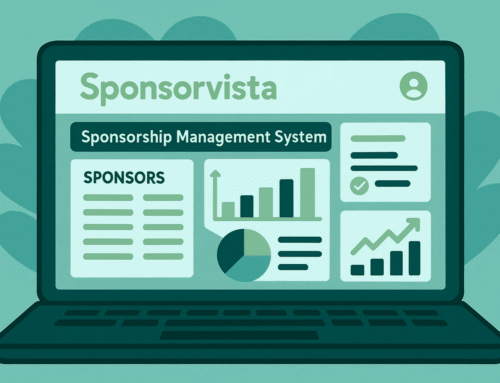Sponsorship Professionalization: Turning Partnerships into Performance

The global sponsorship market continues to expand in 2025, with an estimated annual growth of around eight percent and a total value exceeding €45 billion. But the real transformation goes far beyond growth in budgets. Sponsorship is becoming a mature, data-driven practice built on structure, transparency, and measurable outcomes. Organizations that once relied on informal deals and personal relationships are now investing in systems and insights that turn sponsorship into a strategic pillar of their operations. This shift marks the era of sponsorship professionalization.
Sponsorship has outgrown sport
While sport remains a powerful driver of sponsorship spending, the field has broadened dramatically. Cultural institutions, non-profits, and community organizations increasingly view sponsorship as a structural revenue stream rather than an occasional contribution.
Sponsorvista supports organizations in dozens of countries that are redefining what modern sponsorship management looks like. Despite their diversity, they share the same need: to create clarity, automate routine work, and maintain lasting sponsor relationships.
“Sponsorship is relationship management, Without structure and insight, value erodes over time. Professionalization allows organizations to build predictable revenue and stronger partnerships.”
Data as the foundation of modern sponsorship
The professionalization of sponsorship is powered by data.
Organizations that understand their sponsor base, know when contracts expire, and can measure engagement, are far more effective in retaining and growing partnerships.
Sponsorvista’s platform combines the capabilities of a CRM system with integrated financial tools. Users can manage sponsor information, automate invoicing, track payments, and generate performance insights — all within one interface.
According to internal data, 80 percent of organizations increase sponsorship revenue by an average of 20 percent after implementing the platform, while administrative workload drops by more than 80 percent.
This demonstrates that professionalization is not just about efficiency; it’s about creating measurable growth.
From ad-hoc sponsorship to strategic partnership
Sponsorship has matured from a transactional activity into a strategic process.
Companies now expect clear value — in exposure, community impact, or return on investment. Organizations that manage their sponsorships strategically and transparently are better positioned to build long-term alliances.
“The organizations that will thrive are those treating sponsorship as part of their core strategy,” Betlem explains. “That requires the same level of structure and data-driven thinking as any other business function.”
The next phase of sponsorship
The global shift toward sponsorship professionalization is reshaping how organizations attract and retain partners. Sponsorship is no longer a side activity managed in spreadsheets; it is a structured, measurable process that drives financial stability and brand alignment.
With data-driven platforms like Sponsorvista, clubs, associations, and cultural institutions can manage sponsorship with the same rigor as customer relationships — unlocking growth, reducing administrative work, and strengthening their future resilience.




